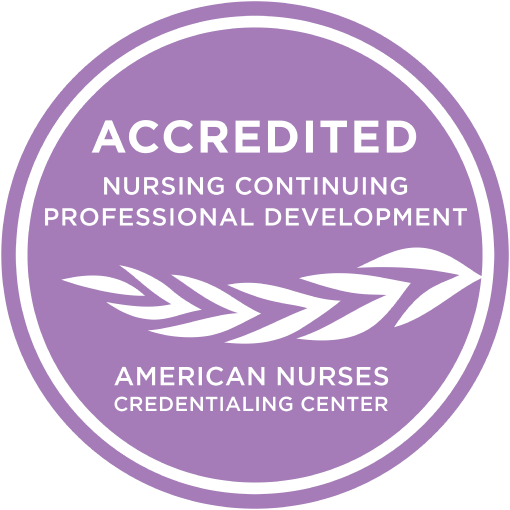New York Mandatory Prescriber Education
3
External Link Child Abuse - Pennsylvania
Pharmacogenomics and Mental Health
3
Antipsychotic Prescribing
3
New Mexico Non-Cancer Pain Management
5
Maine Opioid Prescribing
3
SSRI Use in Anxiety Disorders
1
Tirzepatide for Type 2 Diabetes and Weight Management
1
Differential Diagnosis of Diabetes Mellitus
2.5
California Schedule II Controlled Substances and Neonatal Abstinence Syndrome
2
APRN Scope of Practice and Responsibilities
1
North Carolina Opioid Prescribing
3
Oral Hypoglycemic Medications
3
Differential Diagnosis of Hypothyroidism
2
External Link Texas Human Trafficking
Safe Prescribing of Opioids
3
Testosterone Replacement Therapy
1
California APRN Course Bundle
30
Ohio APRN Renewal Bundle
24
Washington APRN Bundle
30
North Carolina APRN Bundle Part 2
20
Differential Diagnosis Glaucoma and Cataracts
2
Pediatric ADHD Management
2.5
Connecticut APRN Bundle Part 1
20
Puerto Rico APRN Bundle Part 2
30
Mississippi Controlled Substance
5
Nebraska Opioid Prescribing
3
Illinois Safe Opioid Prescribing
3
Inpatient Antibiotic Therapy
2
Connecticut APRN Bundle Part 2
30
Non-Opioid Chronic Pain Management
2
New Jersey APRN Bundle
30
External Link - Washington State Healthcare Professional Telemedicine Training
California Schedule II Controlled Substances and Risk of Addiction
3
Kentucky Pharmacology and Addiction Disorders
1.5
Nevada Cultural Competence in Nursing (DEI Requirement)
3
Differential Diagnosis of Depression
2
Differential Diagnosis: Disorders of the Ear
2
Medication Assisted Treatment (MAT)
2
Michigan Implicit Bias Training - 1 Contact Hour
1
Differential Diagnosis of Borderline Personality Disorder
2
APRN Fluoroscopy Supervision
1
Ohio APRN Practice and Prescribing Laws
2
ANCC Psychiatric-Mental Health Nurse Practitioner Certification Renewal Bundle
75
Semaglutide and Type 2 Diabetes
2
Maine APRN Bundle Part 1
30
Differential Diagnosis Irritable Bowel Syndrome
2
Iowa Fluoroscopy Supervision
1
Opioid Prescribing and the Use of Codone Compounds
Differential Diagnosis: Vertigo and Dizziness
2
Differential Diagnosis Anxiety Disorders
2
Pharmacological Management of Hyperthyroidism and Hypothyroidism
2
Pharmacological Management of Ventricular Arrhythmias
2
Differential Diagnosis: Carotid Occlusions and Strokes
3
Differential Diagnosis: Multiple Sclerosis
2
Maine APRN Bundle Part 2
20
Differential Diagnosis of Erectile Dysfunction
2
Differential Diagnosis of Autism
2
Pharmacological Management of Atrial Fibrillation
2
Pharmacological Management of Overactive Bladder
1
Differential Diagnosis Pancreatic Cancer
2
Differential Diagnosis of Melanoma
3
Differential Diagnosis Congestive Heart Failure
2
Differential Diagnosis of Gestational Diabetes
2
Pharmacological Management of Neuropathic Pain
2
Pennsylvania APRN Bundle
32
ANCC Adult-Gerontology Nurse Practitioner Renewal Bundle
75
Delaware 24 CE APRN Return to Practice Renewal Bundle
24
APRN Pharmacology Bundle
25
Pennsylvania Pain Management and Identification of Addiction
2
Opioid Prescribing for Chronic Pain
1
North Carolina APRN Bundle Part 1
30
North Dakota APRN - Initial Requirements Bundle
30
Opioid Use in the Terminally Ill
3
Differential Diagnosis of Chest Pain
3
SSRI Use in Major Depressive Disorder
1
Schedule II Controlled Substances and Neonatal Abstinence Syndrome
2
Opioid Use and Addiction Disorders
1
Differential Diagnosis Parkinson's Disease
3
Differential Diagnosis Epilepsy and Seizures
2
Kentucky Medical Cannabis Laws and Prescribing for APRNs
3
Corticosteroid Therapy
2.5
Iowa Opioid Prescribing
2
South Carolina APRN Bundle
20
Guidelines for Outpatient Antibiotic Therapy
3
Hormone Replacement Therapy
3
Schedule II Controlled Substances and Risks of Addiction
3
Arizona Schedule II Controlled Substances and Risks of Addiction
3
MATE Act Training Bundle
8
Pain Management for Complex Wounds
3
West Virginia APRN Bundle
27
Florida Autonomous NP Bundle
10.5
Kentucky Pharmacology of Medical Cannabis
3
Puerto Rico APRN Bundle Part 1
20
Indiana Opioid Prescribing
2
New Jersey Opioid Prescribing
1
Rhode Island APRN Bundle
10
Washington, DC APRN Bundle
24
Pharmacological Management of Congestive Heart Failure
2
North Dakota APRN Renewal Bundle
15
Texas Tick-Borne Diseases
2
Differential Diagnosis of Pneumonia
2
Massachusetts APRN Bundle
15
Wyoming Safe Prescribing of Opioids
3
Differential Diagnosis of Oral and Esophageal Cancer
3
New Hampshire APRN Bundle
30
Tennessee Controlled Substance Prescribing
2
Differential Diagnosis of Perimenopause and Menopause
Differential Diagnosis of Gastroesophageal Reflux Disease
2
A Pharmacological Review of Proton Pump Inhibitors (PPIs)
2
Differential Diagnosis: Disorders of the Eye
2
Pharmacological Management of Autism Associated Behaviors
3
Pediatric Opioid Prescribing and Monitoring
2
New Mexico Certified Nurse Midwife Renewal Bundle
30
Alaska APRN Initial Application Bundle
60
2025 Virginia Prescribing APRN Renewal Bundle
8.5
Florida Initial Autonomous Pharmacology Bundle
45
Rhode Island 2025 APRN Renewal Bundle
10
Florida Initial Autonomous Differential Diagnosis Course Bundle
45
Differential Diagnosis: Geriatric Failure to Thrive
2
Arizona APRN Renewal Pharmacology Bundle
45
Arizona APRN Renewal Course Bundle
45
Delaware Returning to Practice APRN Pharmacology Bundle
New Mexico APRN-CNS Pharmacology Bundle
45
Delaware APRN Initial Application Bundle
24
Iowa ARNP Renewal Bundle
36
Florida Certified Nurse Midwife Renewal Bundle
21
Rhode Island APRN Prescribing Renewal Pharmacology Bundle
30
ANCC Family Nurse Practitioner Certification Renewal Bundle
75
Pediatric Pain Management
3
Pharmacological Review of Benzodiazepines
3
Medication Management of Diabetes: Current Treatments and Medications
3
Differential Diagnosis of Addison’s Disease
2

